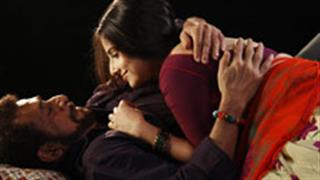Delhi Belly's biggest discovery is its writer itself Akshat Varma. He studied in California long enough to spin a story like of DB's and then came all the way to the Indian subcontinent to approach one of the toughest producers, Aamir Khan, to make a film.
And then, he not only shocked the audience out of their reverie, with his bold and brazen script of the film but also turned into the film's associate director.
Why did you get billed as the associate director of DB?
My bent is towards the Indie style of filmmaking. My intent was to direct as well as write the film. I've done a little of shooting in the USA and that didn't work here in Bollywood. I certainly didn't want to be the weakest link on the set.
I didn't want the production to suffer because the director didn't know what the hell was going on. I also realised Delhi Belly was a very difficult script to execute.
So how did you come on board as AD?
I didn't want to be the one to take away from my script's energy. So I told Aamir I want to be there and I want to be involved with the making of the film. We were really fortunate to get Abhinay Deo.
What was your contribution to the direction?
I was there to say whatever I felt was right for the script.
So how far did you contribute?
I was on the sets throughout. I was there through the casting process and through the auditions.
People compare your film to Guy Ritchie's cinema?
 That's a convenient and facile reference. But this madcap caper can only happen in India. The film has allowed the madness to be
played out in static frames. With so much craziness going on screen we didn't need the camera to add to it.
That's a convenient and facile reference. But this madcap caper can only happen in India. The film has allowed the madness to be
played out in static frames. With so much craziness going on screen we didn't need the camera to add to it.In Guy Ritchie's, the camera goes crazy, too. I'd go back to Stanley Kramer's It's A Mad Mad Mad World. Ritchie is a lazy reference-point. And I'm driven insane by comparisons with Hangover.
Do you use abusive language the way your characters do?
(laughs) How I speak is entirely circumstantial. The people in my film speak a certain way because that's how I felt they'd sound authentic. The way the three protagonists speak in DB comes from my school days. I am a pukka Delhi boy.
Were you aware the abusive language may not go down with the audience?
I wasn't thinking of an audience when I was writing the movie. When you're writing you're not even sure if the work will ever get made into a film. While writing I was only thinking of scenes, not of how people would react to certain scenes. I wrote the movie at the University Of California, in workshop with a bunch of Americans.
Are you aware that the language may not have reached the theatre if Aamir Khan was not your producer?
I don't know about that. But I do know that this could only have been made the way it is because of him.
How do you know the Delhi underbelly so well when you've spent 18 years of your life in California?
I think it all depends on which part of life you spend in which part of the world. I've spent my formative years in Delhi
Have you now shifted to Mumbai?
Yes I have. I am now here to write and direct films.
And are any of those screenplay-writing rules that you learnt in California applicable in Bollywood?
 Yes. But to what specific elements audiences react to, that I think is culture-specific. Drama may have universal resonances. But
humour and comedy are very culture specific.
Yes. But to what specific elements audiences react to, that I think is culture-specific. Drama may have universal resonances. But
humour and comedy are very culture specific. The kind of humour we derive from a Delhi context may not be coherent to someone who lives outside India. However, those differences aside the way we react to a story is the same in every part of the world.
How much of your experiences in Delhi have you put in DB?
A lot. In fact, I've stolen many of my friends' experiences and names. That's the whole point of being a writer. You steal from other people's lives.
You are directing a film next?
Yes, I hope it is as path breaking as DB. I hope to do quality work.
People would expect abusive language again?
I hope not. I don't want to be in a situation where such words are gratuitous or just to shock. I will take as much time to write and direct my next film as it takes.



















